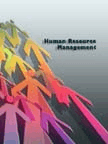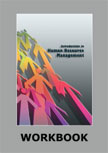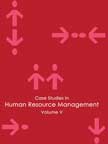Wipro's PCMM - Level 5 Certification
|
|
ICMR HOME | Case Studies Collection
Case Details:
Case Code : HROB010
Case Length : 10 Pages
Period : 1998 - 2001
Organization : Wipro
Pub Date : 2002
Teaching Note : Available
Countries : India
Industry : Information Technology
To download Wipro's PCMM - Level 5 Certification case study
(Case Code: HROB010) click on the button below, and select the case from the list of available cases:

Price:
For delivery in electronic format: Rs. 300;
For delivery through courier (within India): Rs. 300 + Shipping & Handling Charges extra
» Human Resource and Organization Behavior Case Studies
» HRM Short Case Studies
» View Detailed Pricing Info
» How To Order This Case
» Business Case Studies
» Area Specific Case Studies
» Industry Wise Case Studies
» Company Wise Case Studies

Please note:
This case study was compiled from published sources, and is intended to be used as a basis for class discussion. It is not intended to illustrate either effective or ineffective handling of a management situation. Nor is it a primary information source.
Chat with us

Please leave your feedback

|
|




<< Previous
Excerpts
About CMM & PCMM
In the late 1980s, the global upsurge in the information
technology business saw the demand for software soar. This growth also saw an
increase in software development, which led to organizations sharpening their
focus on the processes used in software development. The need for improved
processes required strict process analysis and assessment methods to be put in
place. This resulted in the development of the Capability Maturity Model (CMM)
standards for software by the Software Engineering Institute (SEI) at Carnegie
Mellon University (CMU)...
The PCMM Implementation at Wipro
|
Wipro decided to get PCMM certification after an internal HR meeting in 1996,
where company officials discussed the possibility of becoming a 'HR No 1'
company. In December 1996, Corporate, Executive VP, Human Resources, Dilip
Ranjekar (Dilip), and Ranjan Acharya (Ranjan) VP - Corporate, Human Resources
Development, went to the US to conduct an in-depth analysis on the best global
HR practices. They studied HR policies of various companies such as AT&T, GE,
Tandem and British Telecom for the purpose.
|

By 1999, Wipro developed a 'competency dictionary,'
wherein it identified 24 competency areas spread across the five levels of PCMM. The behavioral issues for each level were identified and the
procedures to address them were also clearly defined. In September 1999,
Wipro took up a study to identify HR areas, where it was weak and conducted
an initial gap analysis for level 2...
|
|
Reaping the Benefits
According to sources at Wipro, the certification was expected to
help the company implement change management effectively. The
company also expected to achieve the goal of 'business development
integrated with people development.' After the successful
assessment, Wipro claimed to have achieved the ability to focus on
its people processes and the learning abilities of its personnel. It
expected to achieve increased productivity and skill sets for its
employees. The company also believed that it was in a position to
adapt better to the rapid changes in the Indian information
technology industry. |
The PCMM certification not only helped the company increase its internal energy
levels, it was also being seen as an affirmation of Wipro's focus on having the
best 'people and business processes.'...
|
|










